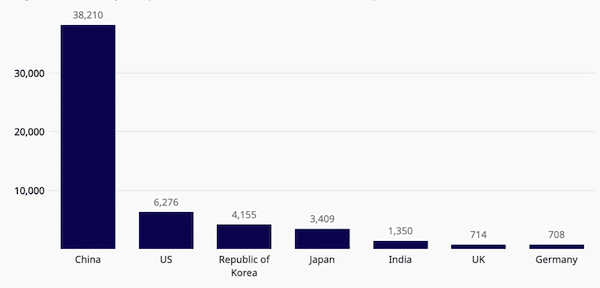China has established itself as a global leader in artificial intelligence (AI) innovation and patent filings.
According to the “WIPO Patent Landscape Report on Generative AI,” China-based inventors are filing the highest number of AI patents worldwide. Between 2014 and 2023, China accounted for more than 38,000 generative AI (GenAI) inventions, which is six times more than the second-place United States.
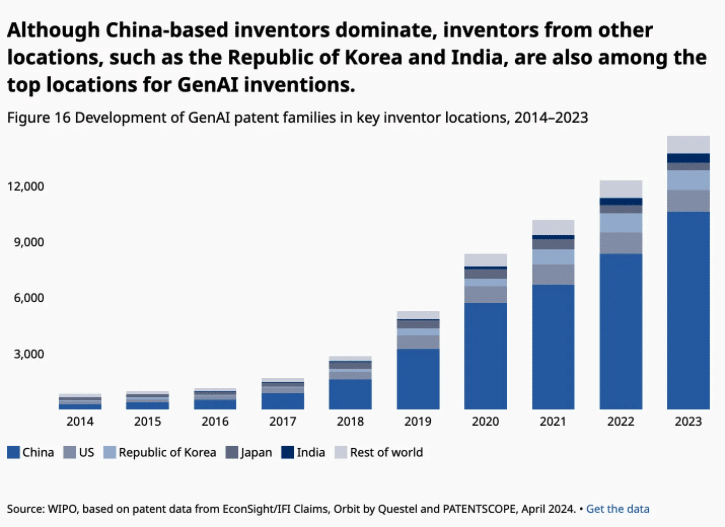
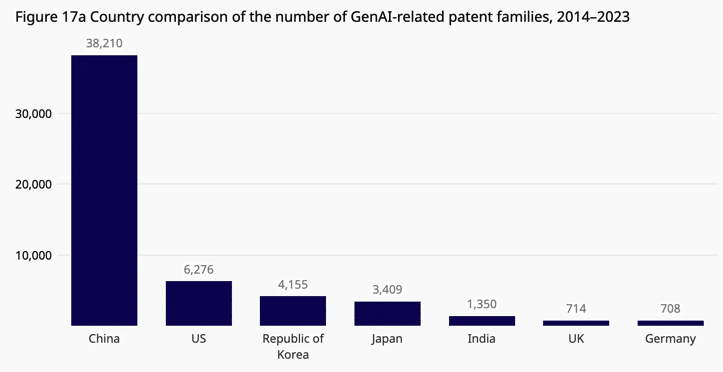
The report highlights that China’s contribution represents a substantial portion of the 54,000 GenAI inventions documented globally during the same period. Notably, more than 25% of these patents emerged in the last year alone, signaling rapid growth and development in this sector. GenAI, which includes technologies for creating content such as text, images, music, and computer code, is transformative across various industries, from life sciences and manufacturing to transportation and telecommunications.
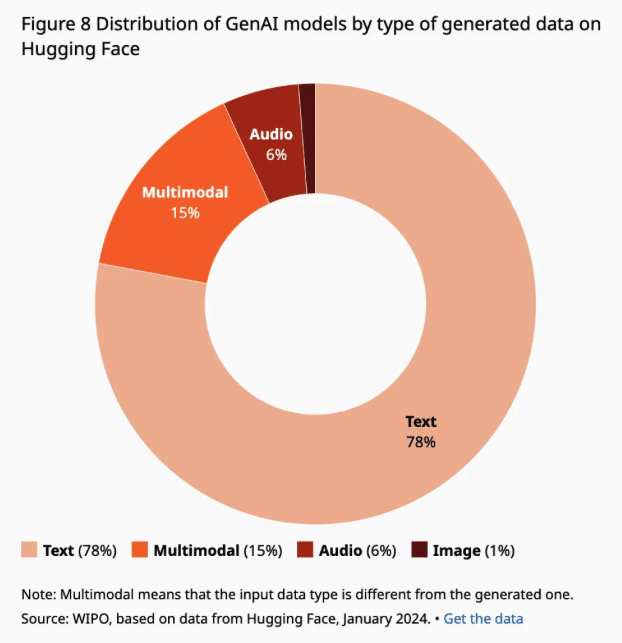
China’s leadership in AI patents is not limited to quantity but extends to quality and diversity of applications. Significant Chinese entities such as Tencent, Ping An Insurance, Baidu, and Alibaba Group are among the top ten global GenAI patent applicants, showcasing the country’s corporate commitment to AI innovation. Baidu, for instance, has demonstrated its prowess through substantial investments in research and development, resulting in a robust portfolio of AI patents. The company has utilized these technologies to address urgent societal needs, such as during the COVID-19 pandemic, by developing AI-based temperature measurement systems and CT imaging analysis tools.
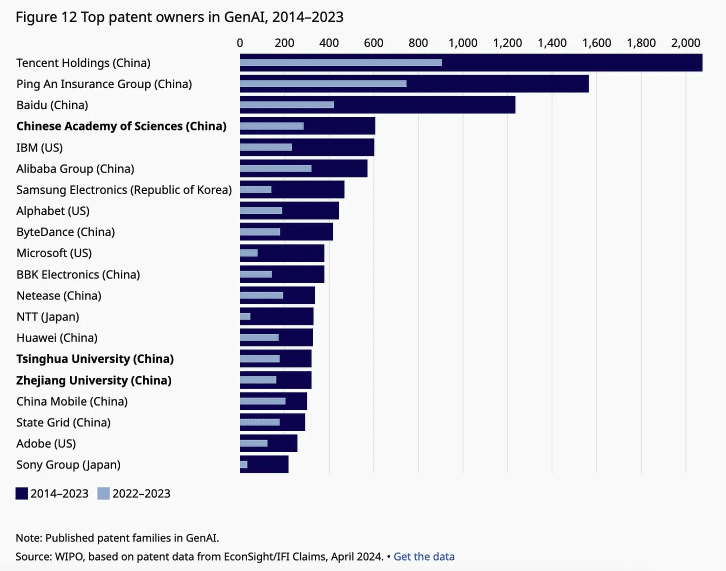
Furthermore, China has strategically included AI in its National Strategic Plan since 2016, supported by numerous government policies aimed at capital, intellectual property protection, and international cooperation. This comprehensive support framework has enabled China to rank first in AI patent filings globally, with over 389,571 patents, accounting for a staggering 74.7% of the global total.
When analyzing the major trends in generative AI models, the report highlights that Tencent led in language model (LLM) patent applications, followed by Baidu. Baidu and Tencent also topped the rankings globally for diffusion models, which generate new content through iterative updates.
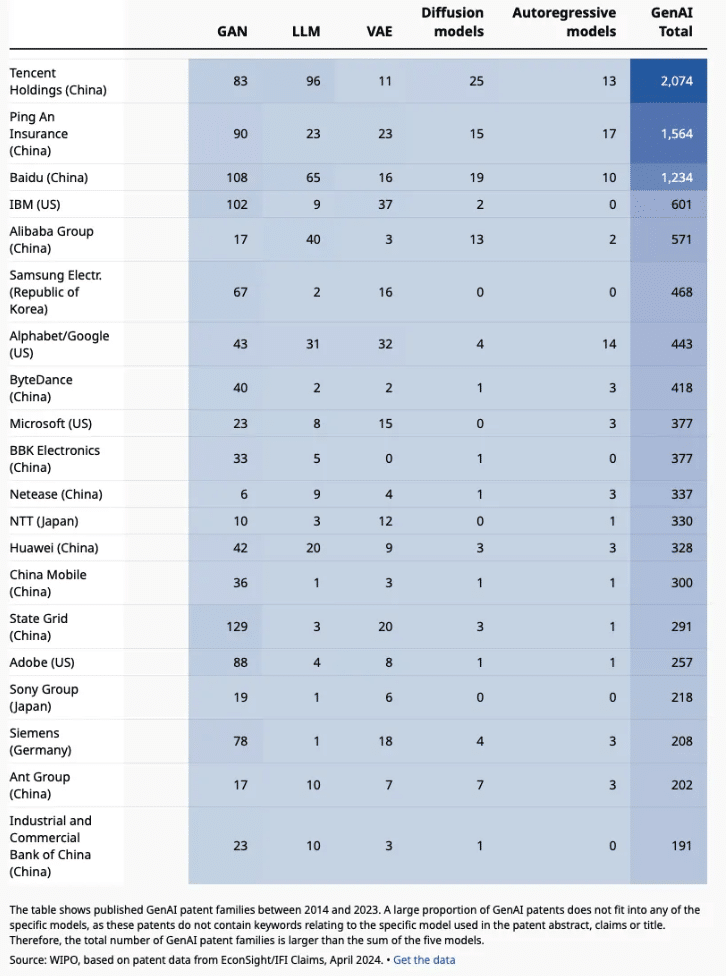
Ping An Insurance Group has developed a diverse portfolio of generative AI intellectual property, filing patents across all five model types including LLM, diffusion, variational autoencoders (VAE), generative adversarial networks (GANs), and transformer-based models.
State Grid, a SOE own by Chinese government, ranks first for GAN-related patents. GANs use two neural networks, a generator and discriminator, that compete against each other to produce more realistic synthetic data. Overall, Chinese technology giants have established leading positions in marquee generative AI technologies.
In addition, an analysis of the top 20 organization patent holders in generative artificial intelligence reveals a focus on visual and multimedia applications among leading research institutions. The Chinese Academy of Sciences stands out as the most prolific inventor of technologies related to processing image and video data. It also ranks first across most other generative AI model categories.
Two exceptions are 3D image models, where Tsinghua University leads with 32 relevant patent applications. Additionally, Zhejiang University holds the top spot for software- and code-based generative AI with 10 related patent filings.
When analyzing patents by country across the different generative AI models, China leads the world in intellectual property development. China’s dominance is most prominent in diffusion models, where they have filed over 14 times as many patent applications since 2014 as the second ranked country, the United States. Specifically, China has published around 500 diffusion model patent applications compared to 35 for the U.S.
China also has a very significant global market share of patents for autoregressive models, which produce new content sequentially based on previous outputs. Overall, the data indicates China is at the forefront of generative artificial intelligence innovation on a national scale, based on metrics of published patents across the major model types over the past decade.
China’s dominance in AI patent filings is a testament to its strategic emphasis on innovation, robust government support, and the proactive efforts of its leading technological enterprises. By continually expanding and enhancing its AI capabilities, China is well-positioned to maintain and further its leadership in the global AI landscape.
In terms of future prospects, the WIPO report suggests that GenAI patents, though currently only representing 6% of all AI patents globally, are poised for substantial growth. Applications in new molecule design for drug development, automation in document management, and advancements in transportation systems are some of the anticipated transformational impacts of GenAI.

